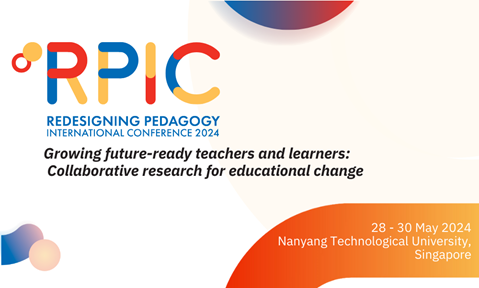New study on adolescent development aims to help teens
SINGAPORE - With the increase in mental health conditions and social isolation among Singapore youth today, there is a worry that they may not reach their full potential as they navigate the challenges and demands of secondary school.
A new study aims to learn how to best support teenagers as they go through changes related to adolescence and puberty, and set them up for success.
Researchers hope to understand how the school, social and family environment impacts school and career aspirations, self-identity, relationships, well-being and lifestyles of teenagers.
Commissioned by the Ministry of Education, the study, led by Professor Kenneth Poon from the National Institute of Education (NIE), follows 7,000 adolescents throughout their four- or five-year journey in secondary school.
The study is jointly led by co-lead principal investigators, Dr Melvin Chan, assistant dean of knowledge management at NIE’s Office of Education Research, and Dr Trivina Kang, chief strategy and partnerships officer at NIE.
They lead a team of 12 investigators with expertise ranging from psychology and education research to games and learning.
Titled Dreams: Drivers, Enablers and Pathways of Adolescent Development in Singapore, the study was launched in 2023 when the participants were in Secondary 1.
It consists of seven sub-studies that each investigate a key area of adolescent development, including special education needs and the impact of financial disadvantage.
At his keynote presentation on May 29 at the Redesigning Pedagogy International Conference 2024 at Nanyang Technological University, Prof Poon said there has been local research done to track the development of children in earlier stages of development and education.
The Growing Up In Singapore Towards Healthy Outcomes cohort study was started in October 2008 to understand how conditions in pregnancy and early childhood influence the health and development of women and children.
The Singapore Kindergarten Impact Project (Skip), a three-year longitudinal study, which followed children from Kindergarten 1 to Primary 1, was launched in 2015 to examine how the home and classroom environment impact children’s learning and development.
A follow-up study, named Skip-Up for short, was launched to continue studying Skip participants and their classmates when they were in Primary 5 or 6.
Prof Poon said that while findings from these early studies emphasise the importance of the early years in a child’s development, there is a second “window of opportunity” that is also crucial.
“These opportunities occur in conjunction with the physical and sexual maturation that we see in young people,” he said, adding that physical changes happen concurrently with changes in the brain.
“We see the physical changes, but we don’t always see the other aspects, the psychological and cognitive aspects.”
Prof Poon said there are changes in realities that young people of today have to grapple with, such as climate change, artificial intelligence and addiction to screen time.
“These are events which are influencing the development of young people, which we are just beginning to realise from international research,” he added.
The student participants were sourced from 28 secondary schools in Singapore – government, government-aided, independent and specialised.
For the study, students will respond to two electronic surveys. The first component comprises a core section for all participants to complete.
The second one comprises three forms that focus on different areas – aspirations and self-identity, interpersonal relationships, and physical and psychological well-being. Students will complete only the form assigned to their school.
The second round of surveys is expected to be conducted in the third school term of 2024.
Investigators will also conduct qualitative interviews and focus-group discussions with some schools.
While there are other international studies conducted on adolescent development, Prof Poon told The Straits Times that the findings may not be applicable to Singaporean youth due to the differences in the education system, parental expectations and values, to name a few. “Whatever we find can probably be quite easily interpreted for use in our environment. I don’t think that can be said of studies that are conducted in another country,” he said.
Dr Chan said that although the study is in the preliminary stage, he looks forward to the continual understanding of what impacts the development of adolescents, so as to inform policy and practice.
He said: “Based on what we see in the first year, I think a lot of the insights are quite encouraging. And they do point to certain supportive mechanisms that could be reported and shared.”
Source: The Straits Times © SPH Media Limited. Permission required for reproduction.
Read the original article here.
Read the article from Lianhe Zaobao here.














/enri-thumbnails/careeropportunities1f0caf1c-a12d-479c-be7c-3c04e085c617.tmb-mega-menu.jpg?Culture=en&sfvrsn=d7261e3b_1)

/cradle-thumbnails/research-capabilities1516d0ba63aa44f0b4ee77a8c05263b2.tmb-mega-menu.jpg?Culture=en&sfvrsn=1bc94f8_1)

7e6fdc03-9018-4d08-9a98-8a21acbc37ba.tmb-mega-menu.jpg?Culture=en&sfvrsn=7deaf618_1)

.tmb-listing.jpg?Culture=en&sfvrsn=7af56b8b_1)

.tmb-listing.jpg?Culture=en&sfvrsn=16b12639_1)


.tmb-listing.jpg?Culture=en&sfvrsn=d686fd5c_1)